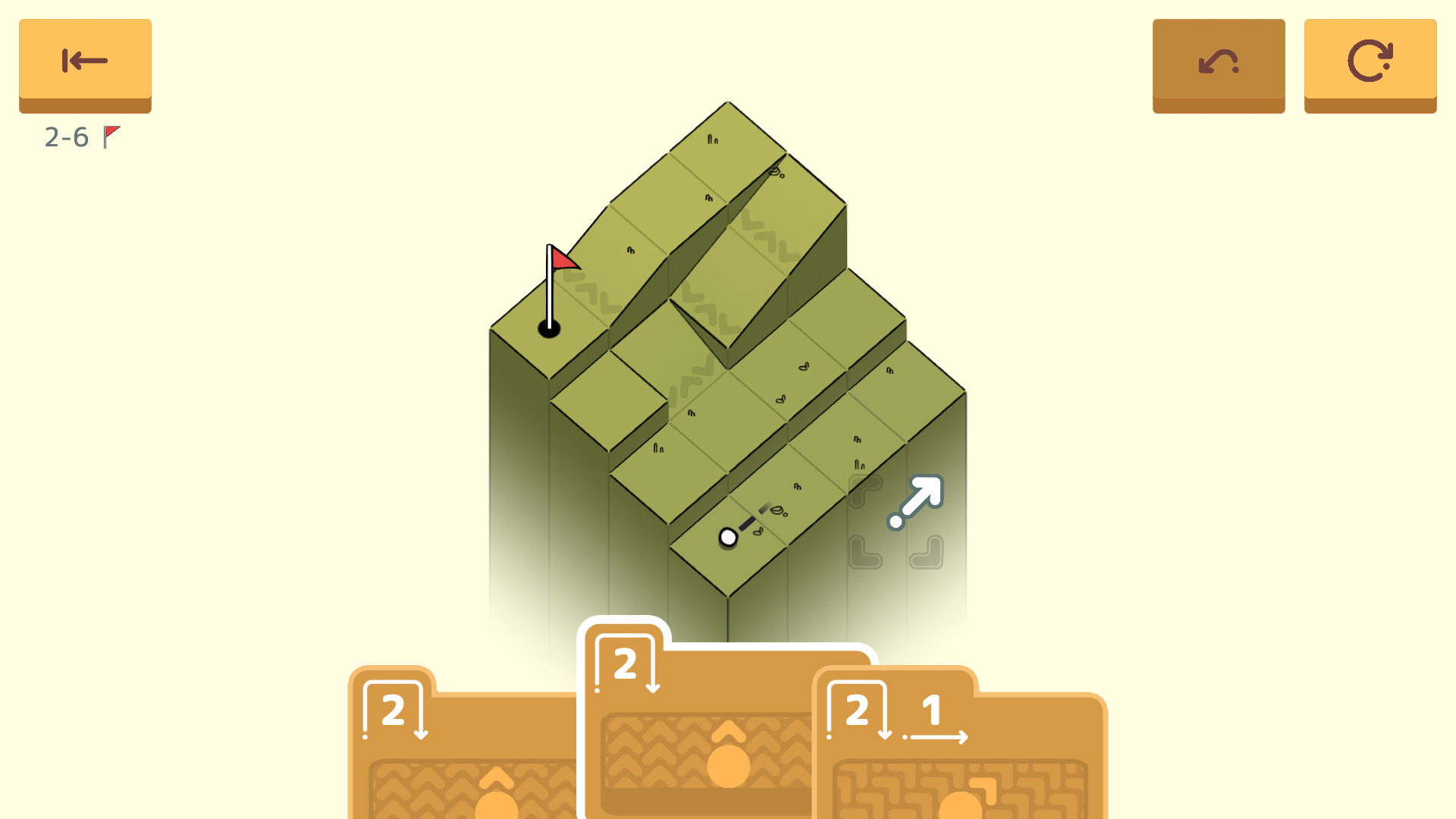On the few occasions that I delved into the scary world of mobile gaming, it was really hard to find something for myself from under the pile of gachas, grinders, endless runners and such. In theory phone market should have a lot in common with flash and arcade games - low barrier of entry, immediately hook the player and then give them acquirable goals to keep them coming back, but I guess microtransactions ruined everything. The one bastion of ingenuity left appears to be the puzzle genre, and that’s the field of battle studio Afterburn decided to enter with their first fully-fledged title, Golf Peaks.
Full disclosure: I am friends with 2/3 of the development team, I saw the project at an early stage and I received a pre-release code for free.
“We want Afterburn to be a small team capable of releasing bite-sized, polished experiences.” An apt description - Golf Peaks took me a little over an hour to finish, as it offers just 72 levels. As you can guess from the title, the conceit is to clear courses by landing a golf ball in the target hole. Unlike most games inspired by this sport, it does not rely on physics and vague controls - this is not a “select direction and power while accounting for the wind and hope for the best” type of system. Instead the levels are grid-based, divided into even squares. At the beginning of each stage, player is given a predetermined suit of moves. Every strike moves the ball a set number of quadrants, either straight or in a lob. Various types of fields have different properties that the player has to take into consideration, and thus all levels are puzzles that the player has to figure out and solve.
The audiovisual presentation is very slick and clean, making use of modern capabilities to make a 3D environment look like something hand-drawn, on top of neat little effects such as the trail left by the moving ball, the hit impact, and the course clear fanfare, all coupled with really pleasing sound effects (reminding me of Nintendo games such as Rhythm Heaven or Wii Sports) and inoffensive background music. One great presentation choice is the omission of text - the game doesn’t really need a story setting to ground itself into, so it’s absent. But more importantly, the rules of the game are simple enough that designers trust the players to figure them out by themselves through experimentation (and as new mechanics are introduced, early levels of each world serve as tutorials by being very simple and rigid).
I found clearing each course to be a soothing experience and it was easy to fall into a trance of playing one level after another (in fact I finished most of the game in one sitting). With that said, I must say that there’s some room for improvement in terms of creating more challenging puzzles. While each section has 3 optional levels which are supposed to test our ability a little more extensively, I found even those to be relatively easy. I’m not gonna lie that the entire title was a breeze because there were a couple of levels that had me scratching my head, but even those only took me a few minutes to figure out. And at the end I didn’t really feel the “a-ha” moment of a solution clicking in, it was more like the feeling of finally unwrapping a complex math equation and seeing the pattern you can apply a formula to. On that note, a lot of the levels were simple enough that I didn’t even need to plan a solution ahead of the time - I simply made the move that made the most sense based on ball’s current position and I would often clear the course on first try with such method. In this sense, the game benefited from its longer levels which combined a lot of different mechanics and required more thought in carefully choosing each card. I think the gameplay model is a great template, but I would gladly see a level pack which uses all the same mechanics, but creates more complex, abstract levels that would activate the creative part of the brain a little more.
Ultimately this is not bad for a studio’s debut title, and the first puzzle game everyone involved worked on. It’s tight and polished, looks well from the first glance and leaves a good impression. One mechanic I would really love to see is the popular 3-star system where people can clear each course in a better or worse manner (for example, by not using all the cards, or by passing a particular field to “collect” an object), but of course that would really complicate the level design process so I can understand why they didn’t go for it. I imagine the studio will want to start another project now, based on its mission statement, yet if they decide to put a little more time into this, then I would gladly put a few more balls in holes.
Golf Peaks is available on Steam and iOS from 13.11.2018 for 19 PLN and 13,99 PLN, respectively



No comments:
Post a Comment